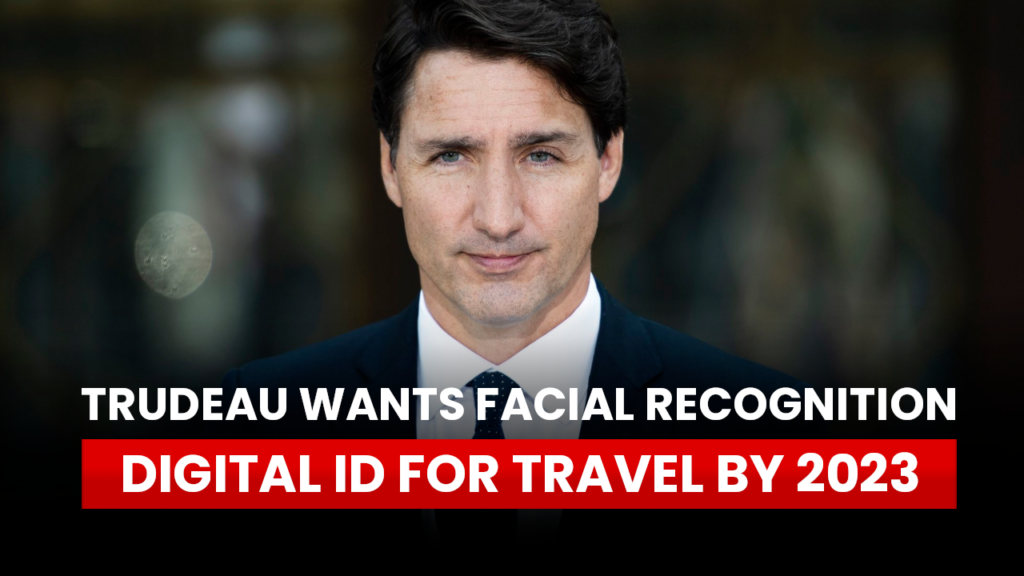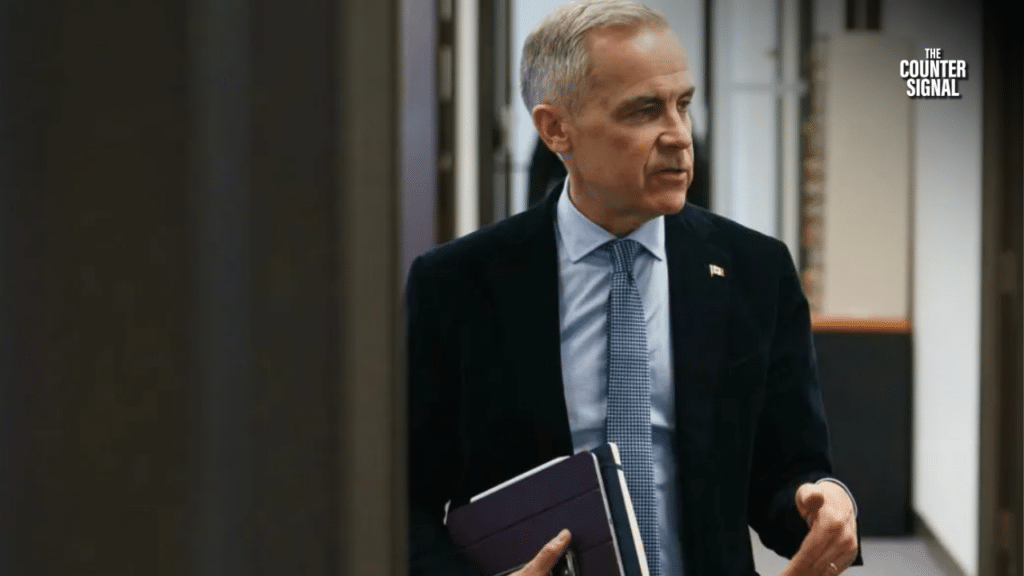The Trudeau government has been working with major Canadian airlines to formally bring in digital ID, facial recognition, and biometric travel documents to air travel by 2023.

According to an article from the Canada Gazette, the government’s outlet, “In accordance with PS’ Forward Regulatory Plan 2021–2023, the need to update the [Secure Air Travel Regulations] to offer more options to travellers and the industry to meet pre-aircraft boarding identity verification requirements through innovation was also considered during the stakeholder consultation exercises.”
“This includes digitized identification documents, digital identity documents and biometric travel documents. While four air carriers confirmed their intent to implement innovative identity management solutions in the short to medium term, no specific immediate change has been identified for the SATR.”
The government clarifies what they mean by digital identity documents and biometric travel documents towards the bottom of the article:
“For the purpose of this proposal, digitized, digital and biometric documents refer to digital copies of physical identification documents that are scanned or updated, digital identification documents issued by a government authority, and electronic identification documents that use biometric identifiers (such as facial recognition) respectively.”
The proposal has come under the guise of protecting Canada from terrorists by enhancing the Passenger Protect Program (PPP).
According to the government, Canadians could potentially be assigned a Canada Travel Number (CTN) connected to all their personal information that is cross-referenced with Secure Air Travel Act (SATA) lists to determine whether someone poses a national security risk.
They add that establishing a CTN will “prevent delays.”
To confirm a traveller is really the one attached to their CTN digital ID, the government proposes using biometric data collection, including facial recognition, as a possible pre-screening requirement.
The government also proposes further centralizing air travel data by having all data collected by airlines sent directly to the Government of Canada through the Canada Border Service Agency to review.
“The centralized screening system transfers the responsibility for screening passengers against the SATA List from air carriers to the GC, namely the Minister of Public Safety and Emergency Preparedness, with assistance from TC and the CBSA.”
“For the Minister to fulfill this responsibility, SATA requires air carriers to provide the Minister (in practice the CBSA, the centralized receiver of all electronic passenger manifests) with prescribed data (name, date of birth, gender and, if provided, the CTN) on each person who is on board or expected to be on board an aircraft for any flight captured under the SATR, if that information is in the air carrier’s control, within a prescribed time and manner.”
The push to introduce a permanent digital ID to travel comes after the Trudeau government signed on to the World Economic Forum’s digital ID program, called the “Known Traveller Digital Identity” (KTDI), that would bring a social credit-score-like system for travel.
“The pilot group, convened by the World Economic Forum, consists of the Government of Canada and the Netherlands, Air Canada, KLM Royal Dutch Airlines, Montreal-Trudeau International Airport, Toronto Pearson International Airport, and Amsterdam Airport Schiphol,” writes the WEF on their website.
KTDI is referred to as a way to “promote secure, seamless passenger travel in anticipation of changing traveller behaviours and expectations, the critical need to strengthen cross-border security and the surge in passenger volumes expected in the coming decade.”
The website claims it’s based on a “decentralized digital identity” that will allow governments to confirm proof of citizenship and other aspects of identity. Every time a government checks a person’s digital ID, it is added to their record, possibly affecting their standing.
“These attestations are the backbone of trust and the basis of reputation and, ultimately, how security decisions are made by each participating organization. The more attestations a traveller collects, the more known he or she could become,” it reads.
“It is important to note that in order to be allowed to travel, the traveller must share all information required by the relevant entity (such as a border agency).”









